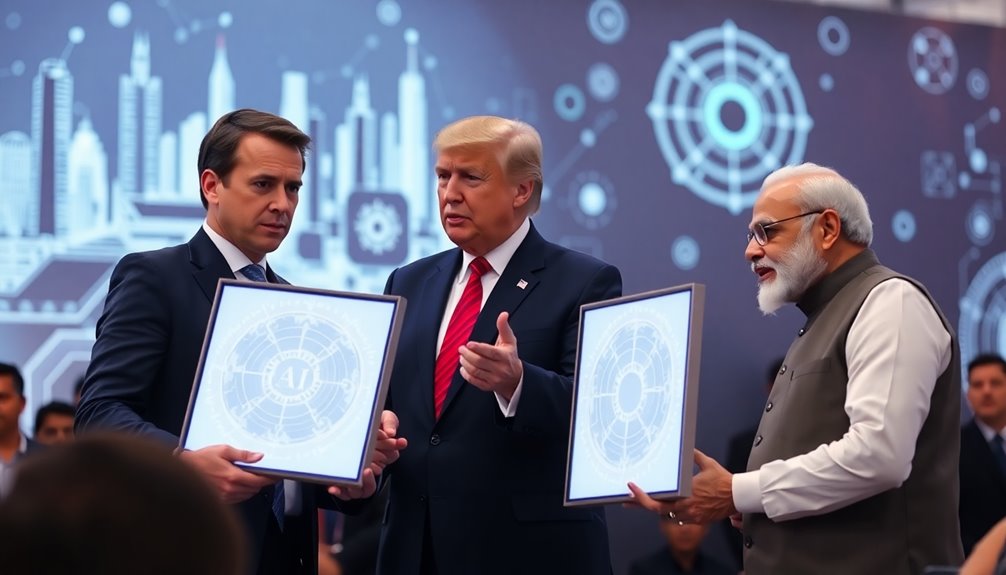As former President Trump and Prime Minister Modi join forces in artificial intelligence, a new chapter in international collaboration unfolds. You can see the potential this partnership holds for technological strides and economic growth. By prioritizing strategic investments and ethical considerations, they aim to position the U.S. and India as leaders in AI. But what challenges lie ahead, and how will they navigate the complexities of this ambitious initiative?

As the world increasingly turns its attention to artificial intelligence, the collaboration between former President Trump and Prime Minister Modi highlights a pivotal moment for both the U.S. and India. This partnership centers on AI as a crucial area for bilateral cooperation, with both leaders recognizing its potential to drive technological advancements and tackle societal challenges. By emphasizing AI in their discussions, they're setting the stage for significant growth and innovation.
India has been proactive in global AI governance, recently co-chairing the AI Action Summit with France. This position not only strengthens India's role in shaping AI policies but also aligns with U.S. interests in establishing a leadership position in AI innovation. Together, the two countries aim to enhance their global influence in this transformative field.
The collaboration's economic implications are substantial. AI is poised to be a key driver of economic growth, generating new jobs and opportunities in both nations. Strategic partnerships between U.S. and Indian companies will be essential for the development and deployment of AI technologies, ensuring that both economies benefit from advancements in this area.
One of the most significant initiatives emerging from this collaboration is the US-India TRUST Initiative, designed to boost cooperation in critical technologies, including AI and semiconductors. By enhancing AI infrastructure in India with U.S. support, both countries are laying the groundwork for a robust technological ecosystem. AI, hi-tech, and semiconductors identified as vital areas for collaboration further underscores the importance of this initiative.
Initiatives like INDUS Innovation aim to attract investments in cutting-edge technologies, further solidifying this partnership. The focus on specific technological areas, such as quantum computing and biotechnology, showcases the shared vision for innovation.
By collaborating in these fields, the U.S. and India can harness AI's capabilities to make strides in healthcare, finance, and security, ultimately benefiting their populations.
However, the partnership isn't without challenges. Both leaders must confront issues like bias in AI training data and the ethical implications of AI deployment.
Sustainability also plays a critical role, as they work towards creating AI models that minimize environmental impact.

















